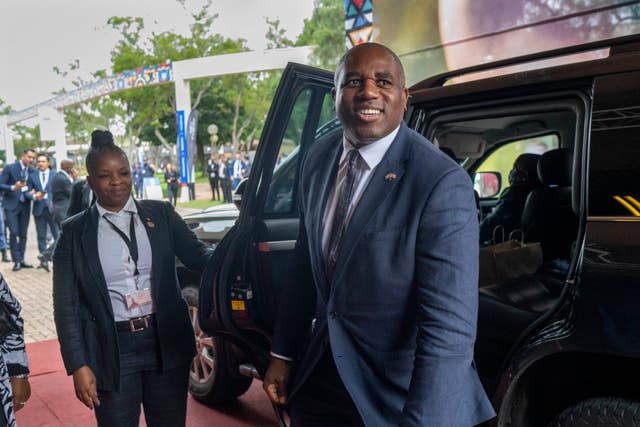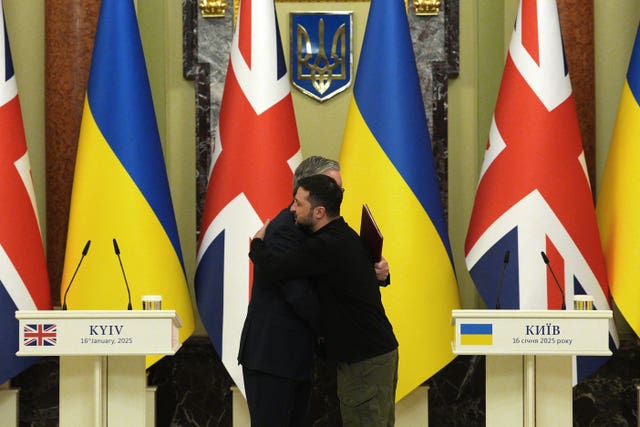Lammy: Russians have no ‘appetite’ for peace in Ukraine
The Foreign Secretary cast doubt on Russia’s seriousness about achieving peace in Ukraine, at a meeting of G20 foreign ministers.

Russia has no “appetite” for peace in Ukraine, the Foreign Secretary has said, after a meeting of foreign ministers in South Africa on Thursday.
Foreign ministers from G20 nations, including Russia’s Sergei Lavrov, gathered in Johannesburg for their annual meeting, days after officials from Washington and Moscow began talks on ending the war in Ukraine.
But after a speech from Mr Lavrov, David Lammy told reporters he did not believe Russia was serious about wanting peace.
He said: “At the moment, we’ve had talks effectively about talks.
“We’ve not got anywhere near a negotiated settlement, and I have to say when I listened to what the Russians and what Lavrov has just said in the chamber this afternoon, I don’t see an appetite to really get to that peace.”
In his own speech, which was boycotted by Mr Lavrov, Mr Lammy accused his Russian counterpart of advancing “tired fabrications” and “the logic of imperialism dressed up as a realpolitik”.
He added: “If (Russian President Vladimir) Putin is serious about a lasting peace, it means finding a way forward which respects Ukraine’s sovereignty and the UN Charter, which provides credible security guarantees, and which rejects tsarist imperialism, and Britain is ready to listen.”

Russian officials have repeatedly said that Moscow will not agree to return territory to Ukraine or allow Nato or European troops to be deployed to the country as peacekeepers.
The G20 meeting comes at a fraught time in global politics, as the US and Russia begin talks about Ukraine’s future, but without any Ukrainian representation.
Meanwhile, US President Donald Trump’s accusation that Ukrainian president Volodymyr Zelensky is a “dictator” suggests a rift between the two men that some have warned could “embolden” Mr Putin.
The row over Mr Trump’s comments, in which he criticised Mr Zelensky for postponing elections during the conflict and incorrectly suggested Ukraine had started the war, provoked opposition from British politicians.
Sir Keir Starmer gave Mr Zelensky his backing in a call on Wednesday while on Thursday Defence Secretary John Healey compared him with Sir Winston Churchill, who also postponed elections during wartime, and praised his “commitment to his country”.

Conservative leader Kemi Badenoch and Lib Dem leader Sir Ed Davey both pushed rejected Mr Trump’s comments on Wednesday, and Reform UK leader Nigel Farage told GB News on Thursday that Mr Zelensky was “not a dictator” but it was “only right and proper that Ukrainians have a timeline for elections”.
Tensions between Ukraine and the US appeared to deepen further on Thursday after a planned news conference with Mr Zelensky and Mr Trump’s Ukraine envoy, retired general Keith Kellogg, was cancelled.
The two men had held talks earlier in the day, but Mr Zelensky’s spokesman said the press conference had been cancelled at the request of the US.
Deteriorating relations between Ukraine and the US would provide a tricky background for the Prime Minister as he heads to Washington next week for talks with Mr Trump.
Sir Keir has previously spoken of the need for a US security “backstop” to any peace agreement, in order to deter further Russian aggression, and is likely to discuss the proposal with Mr Trump as well as plans for increasing Europe’s contribution to its own defence.





